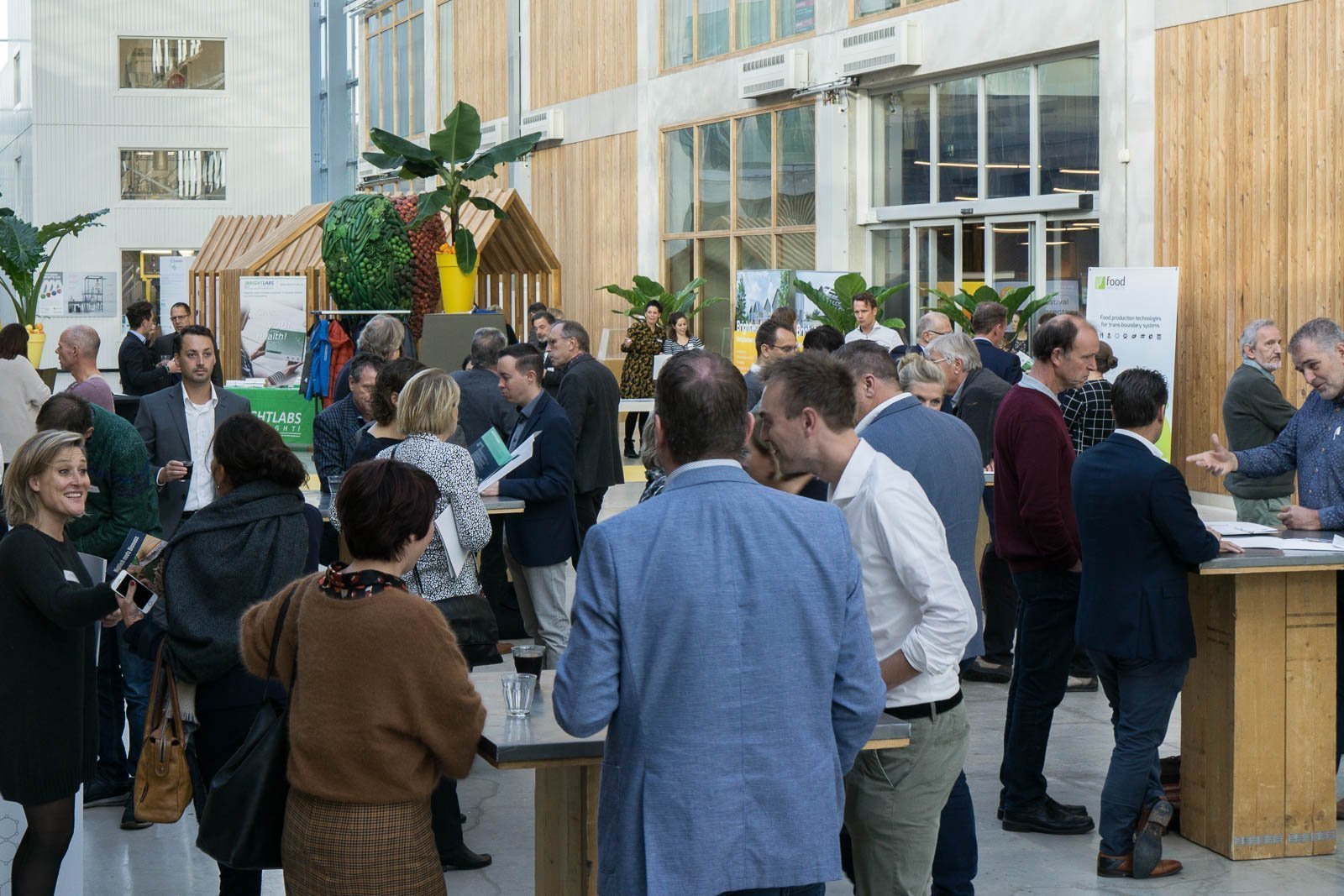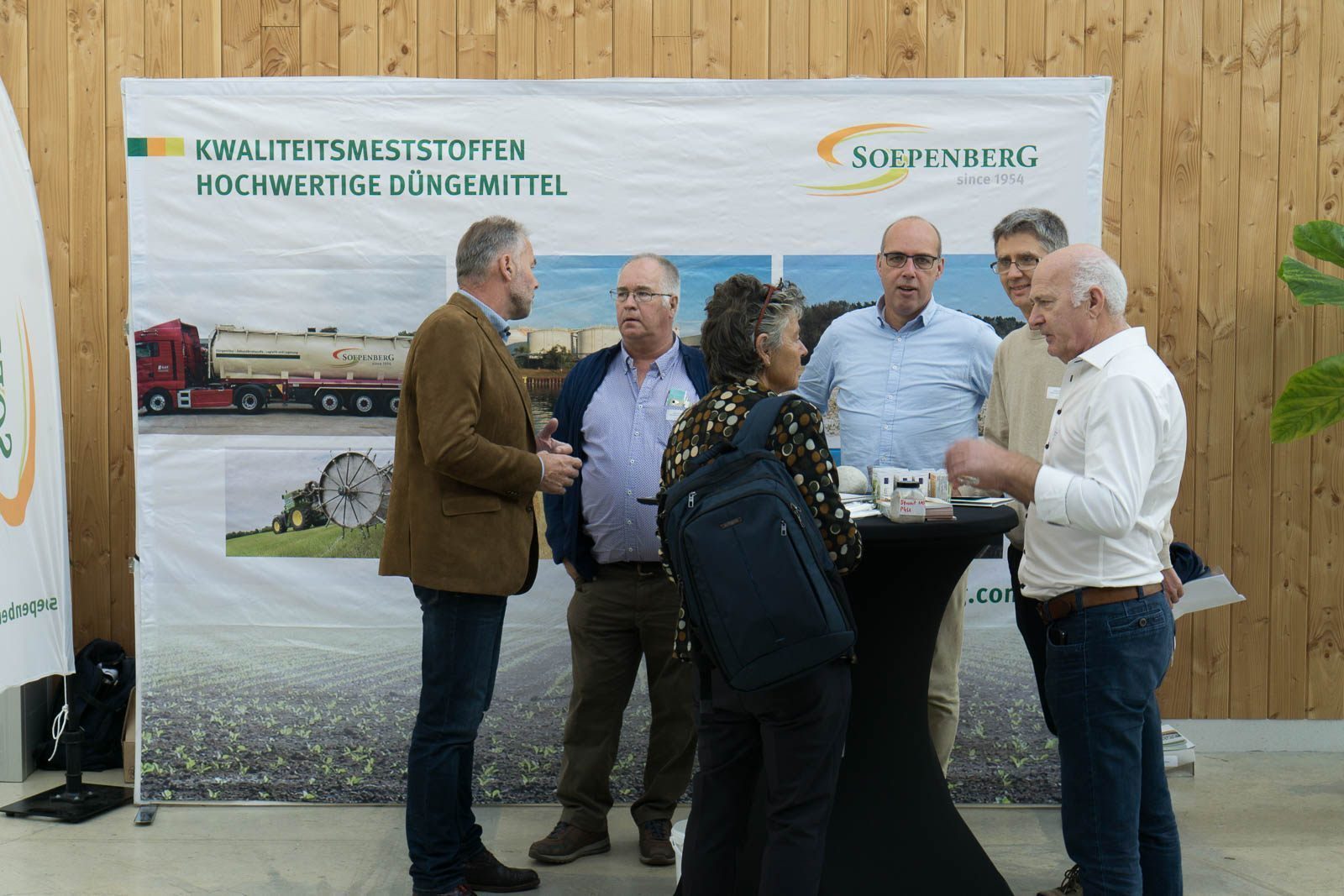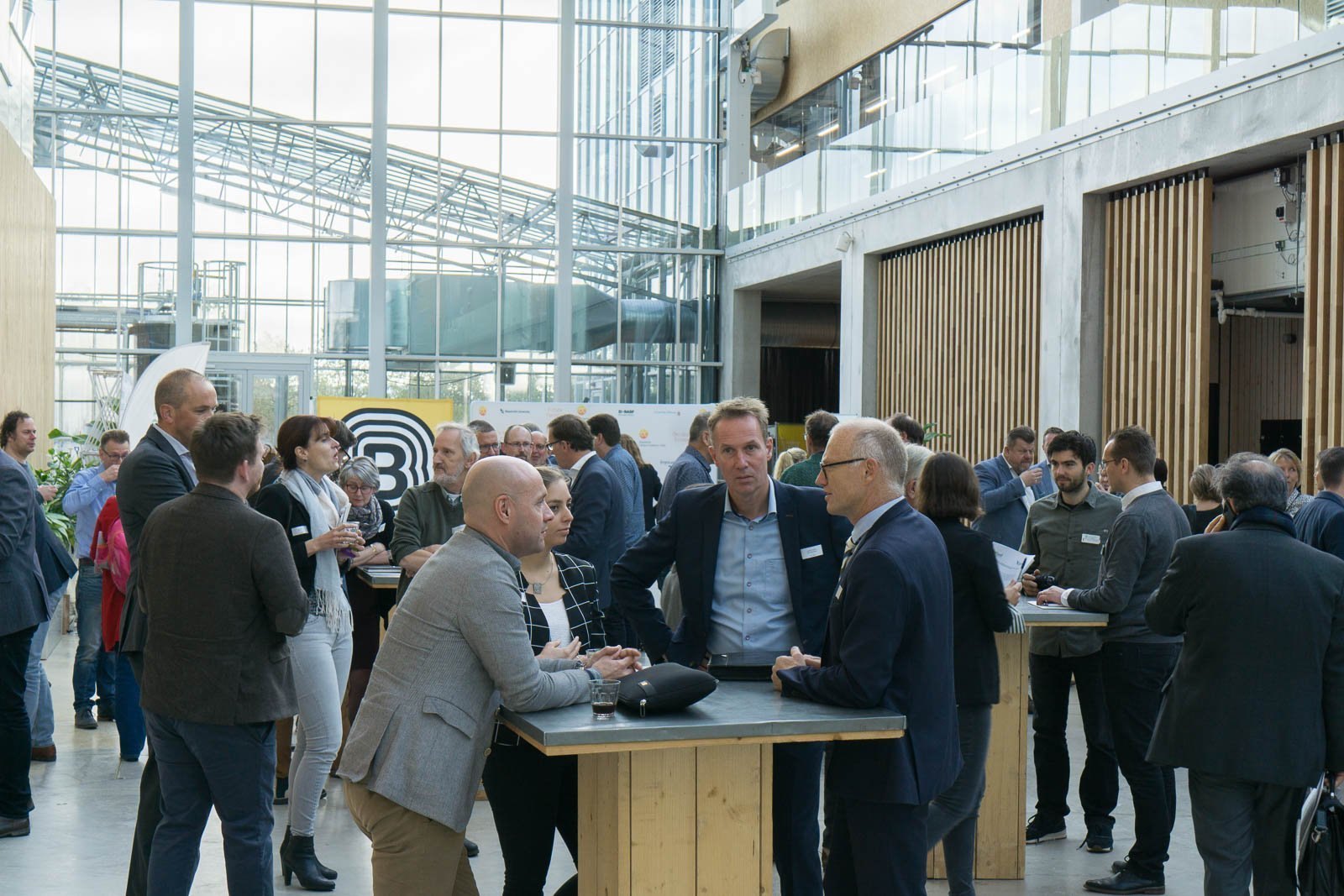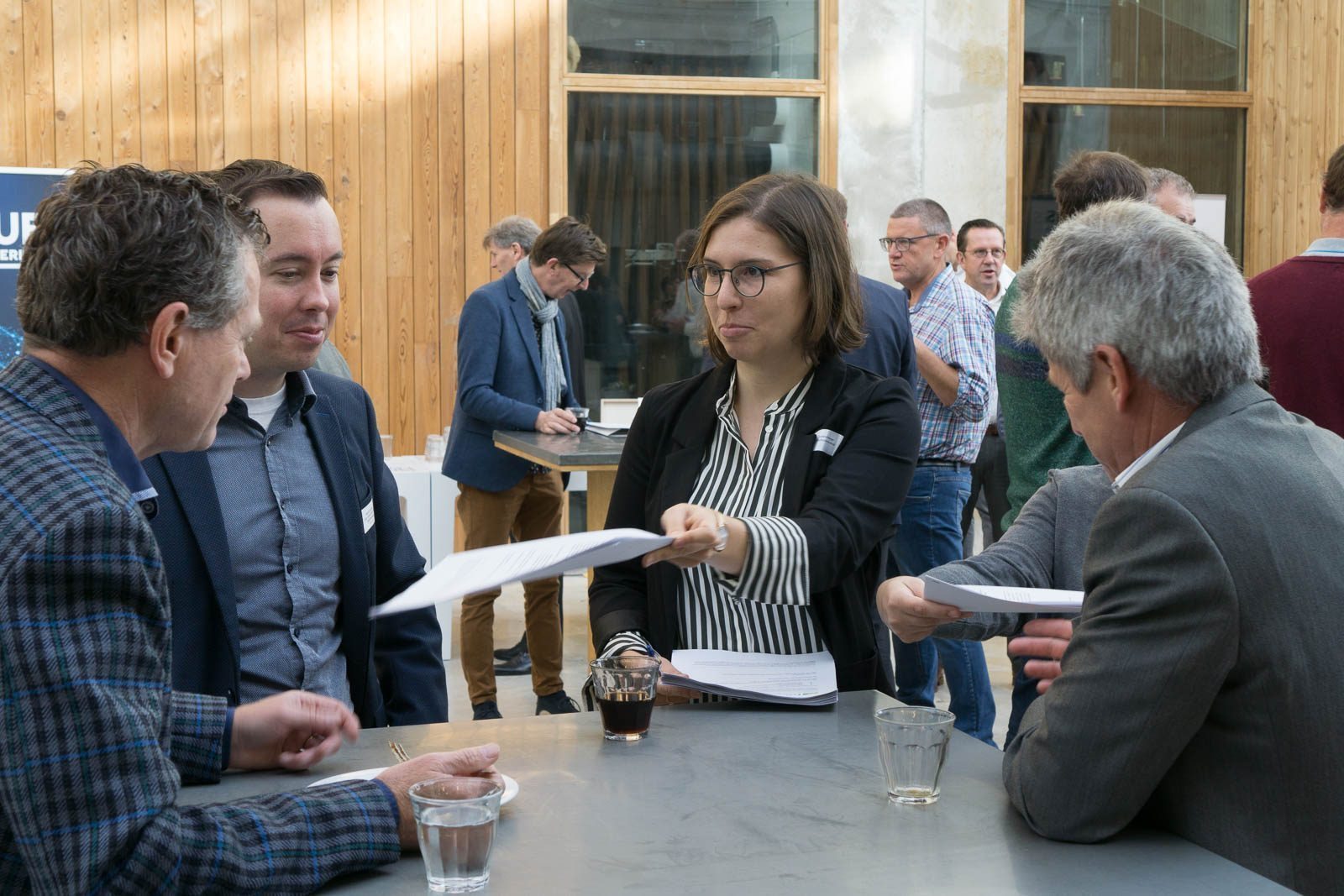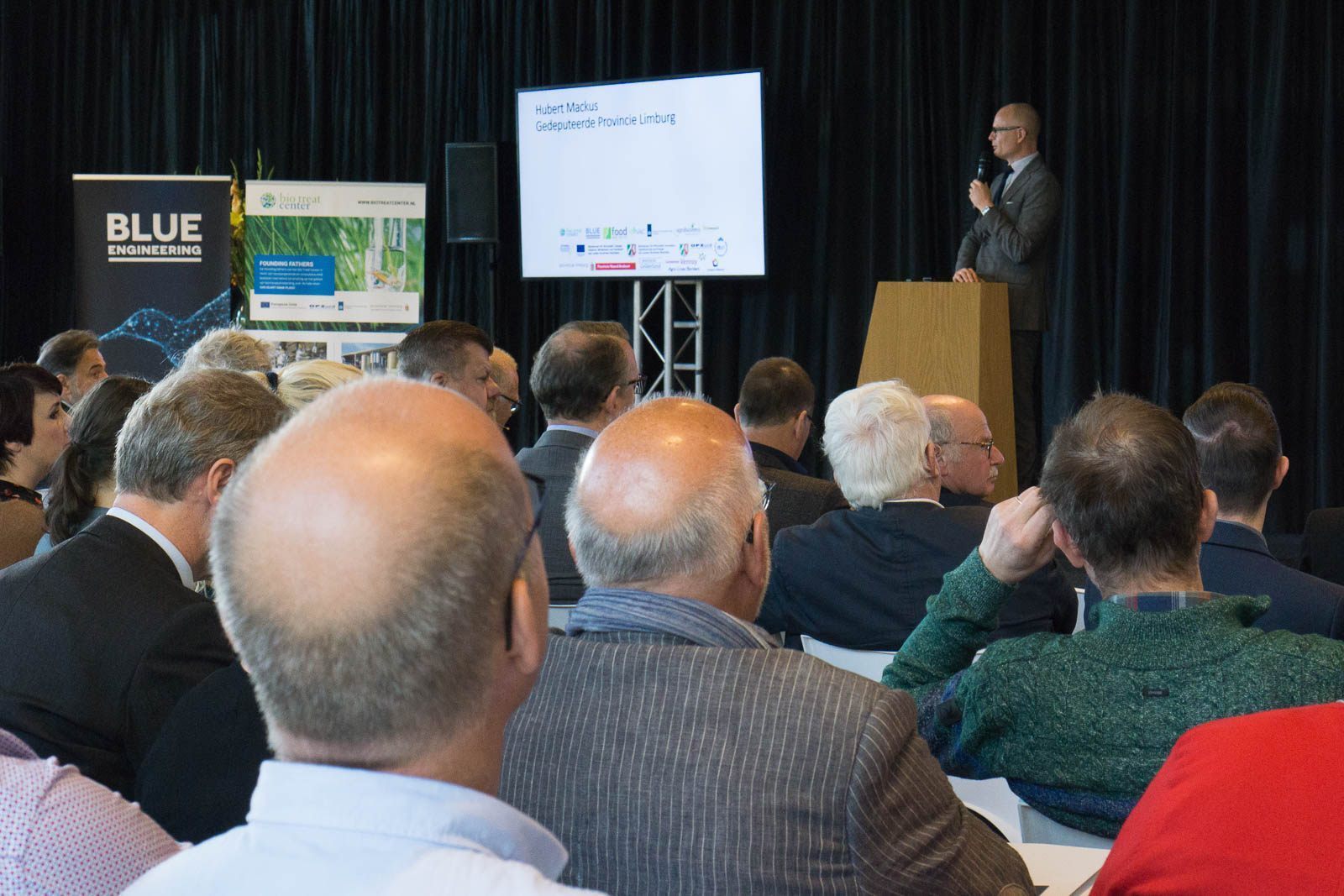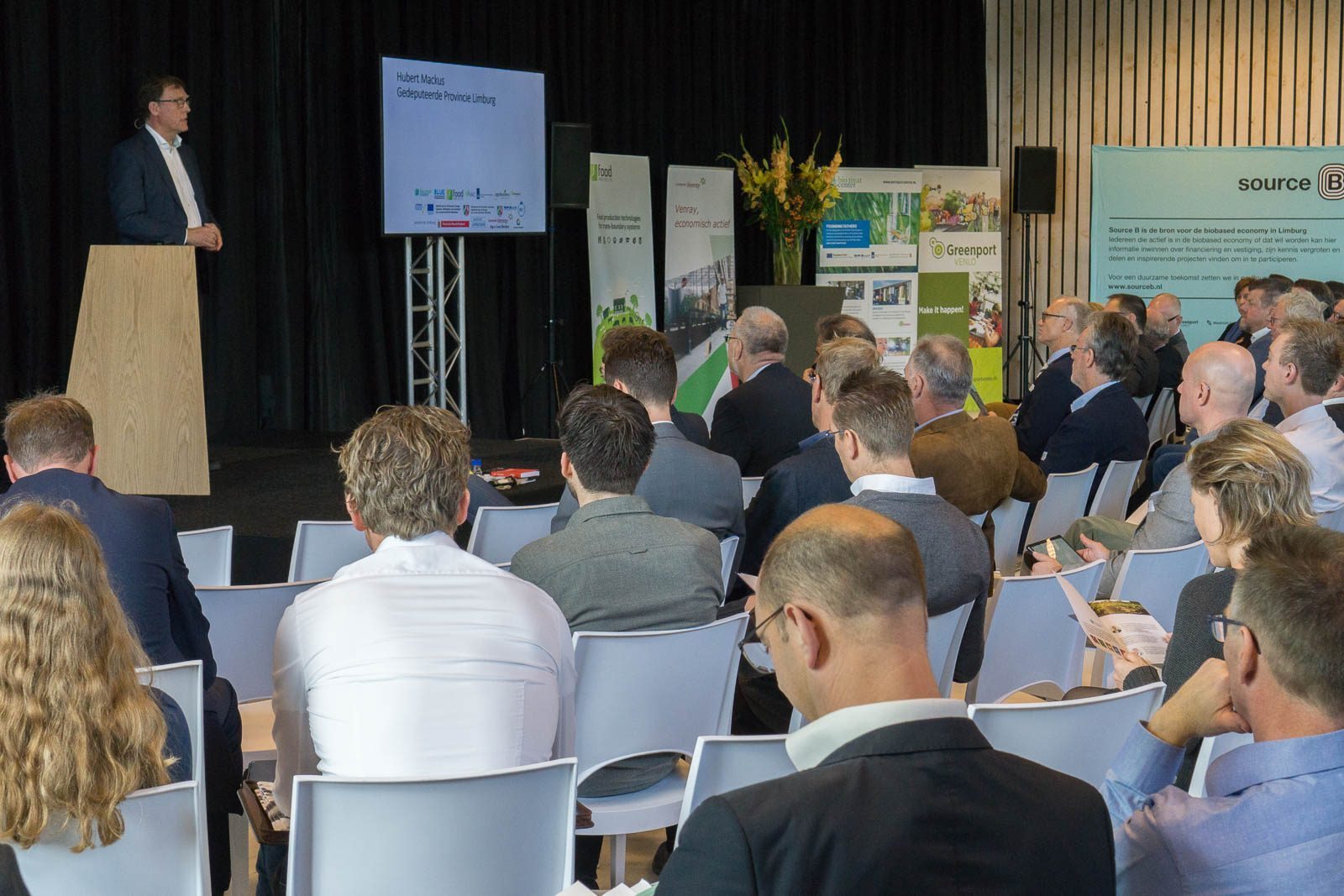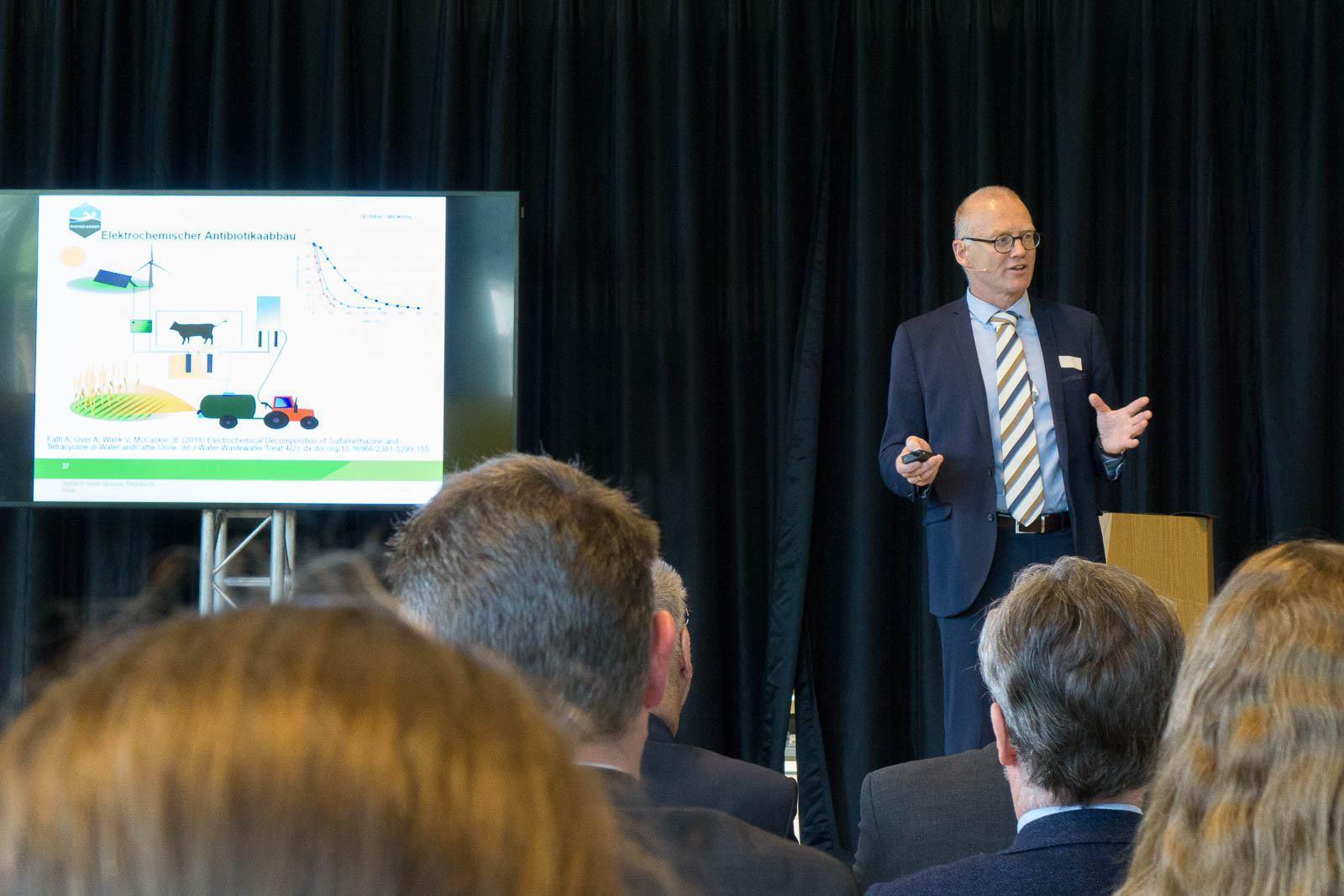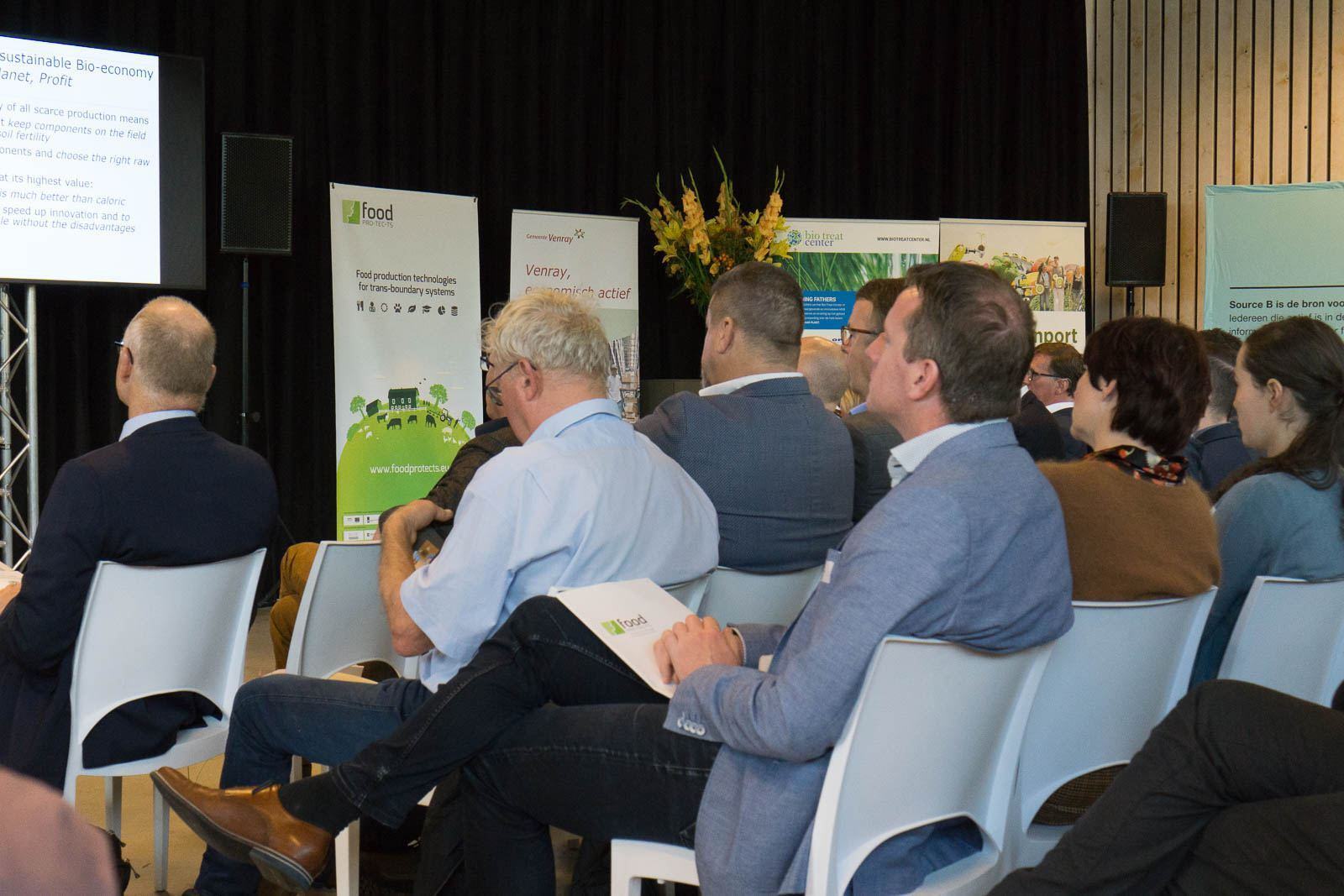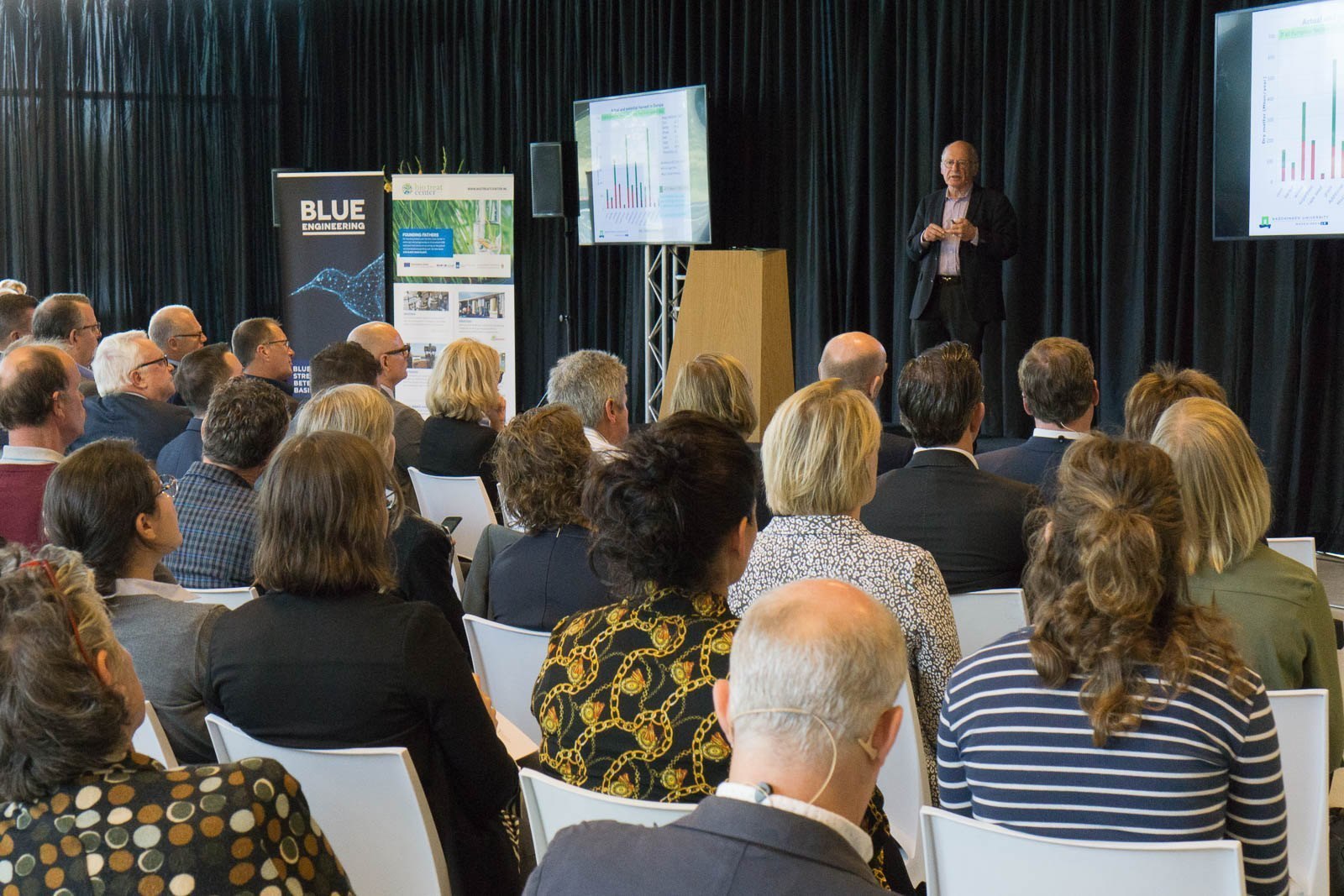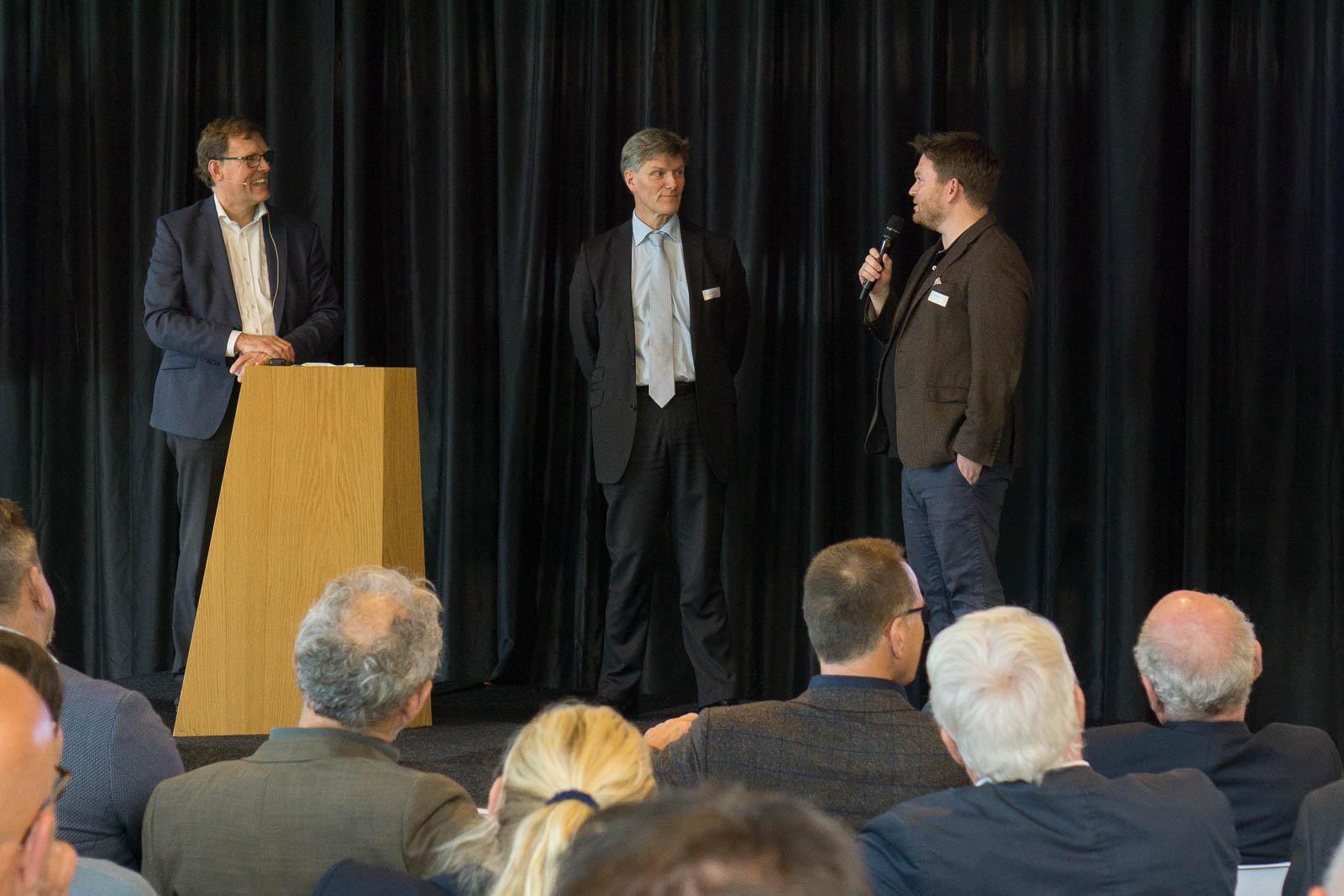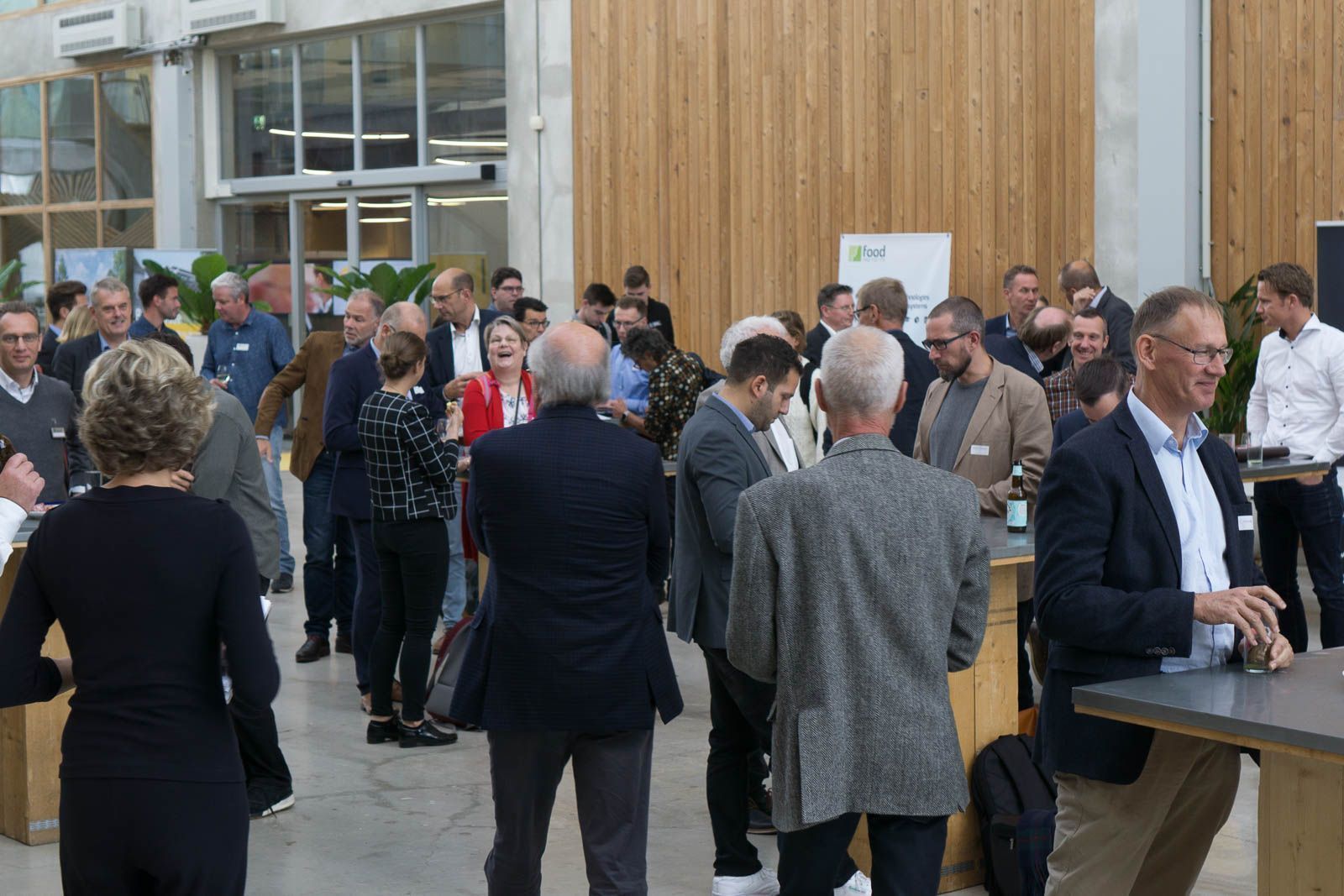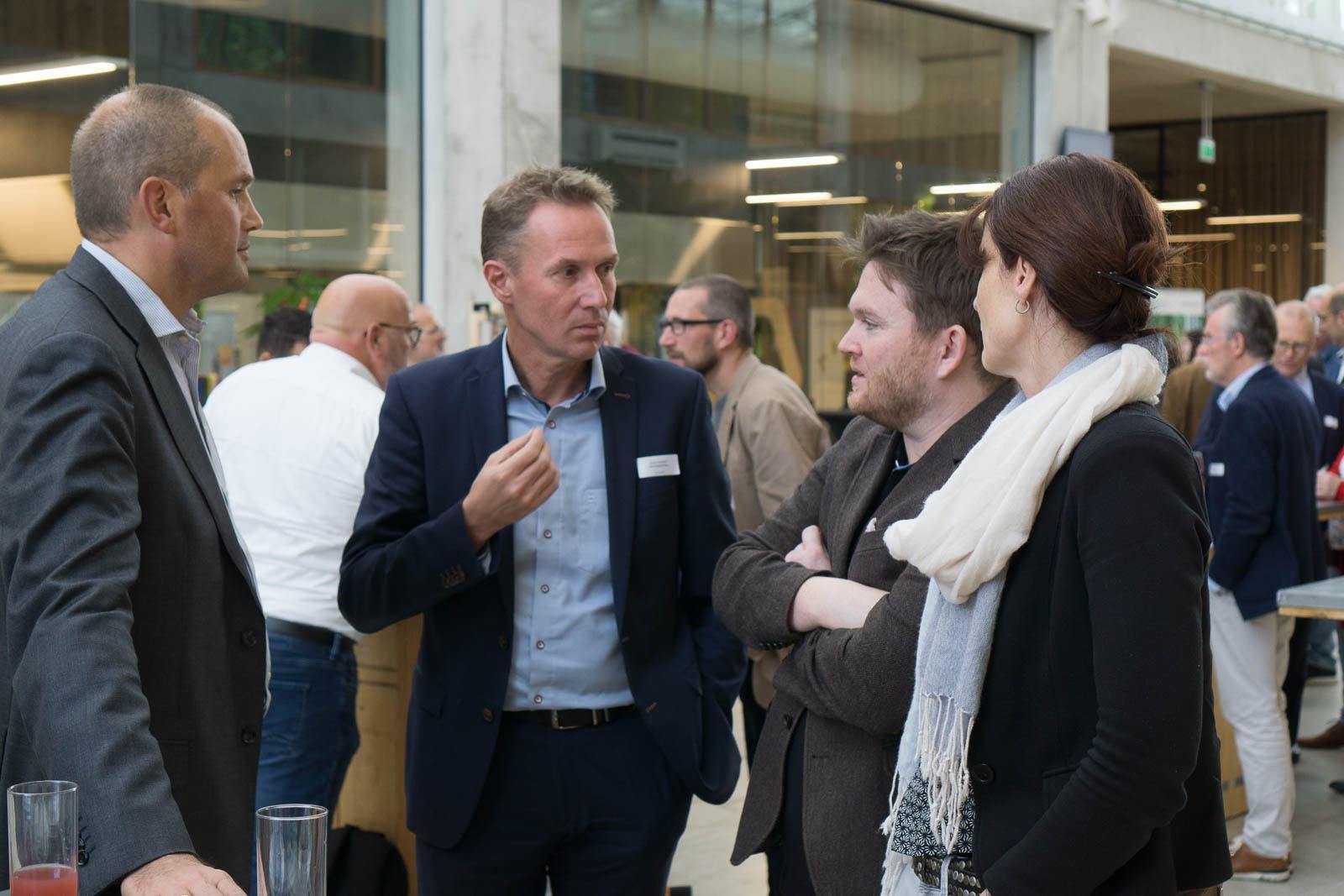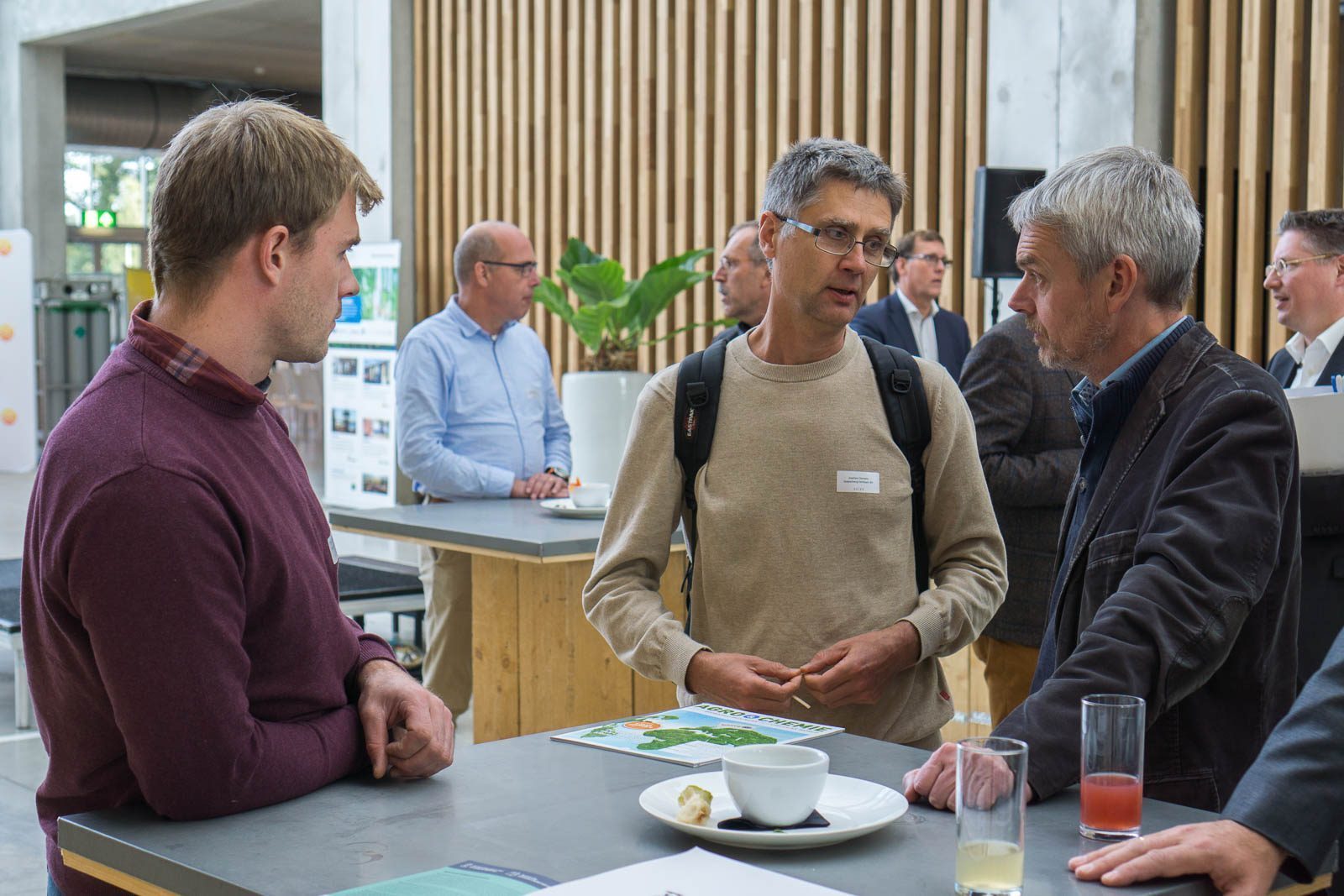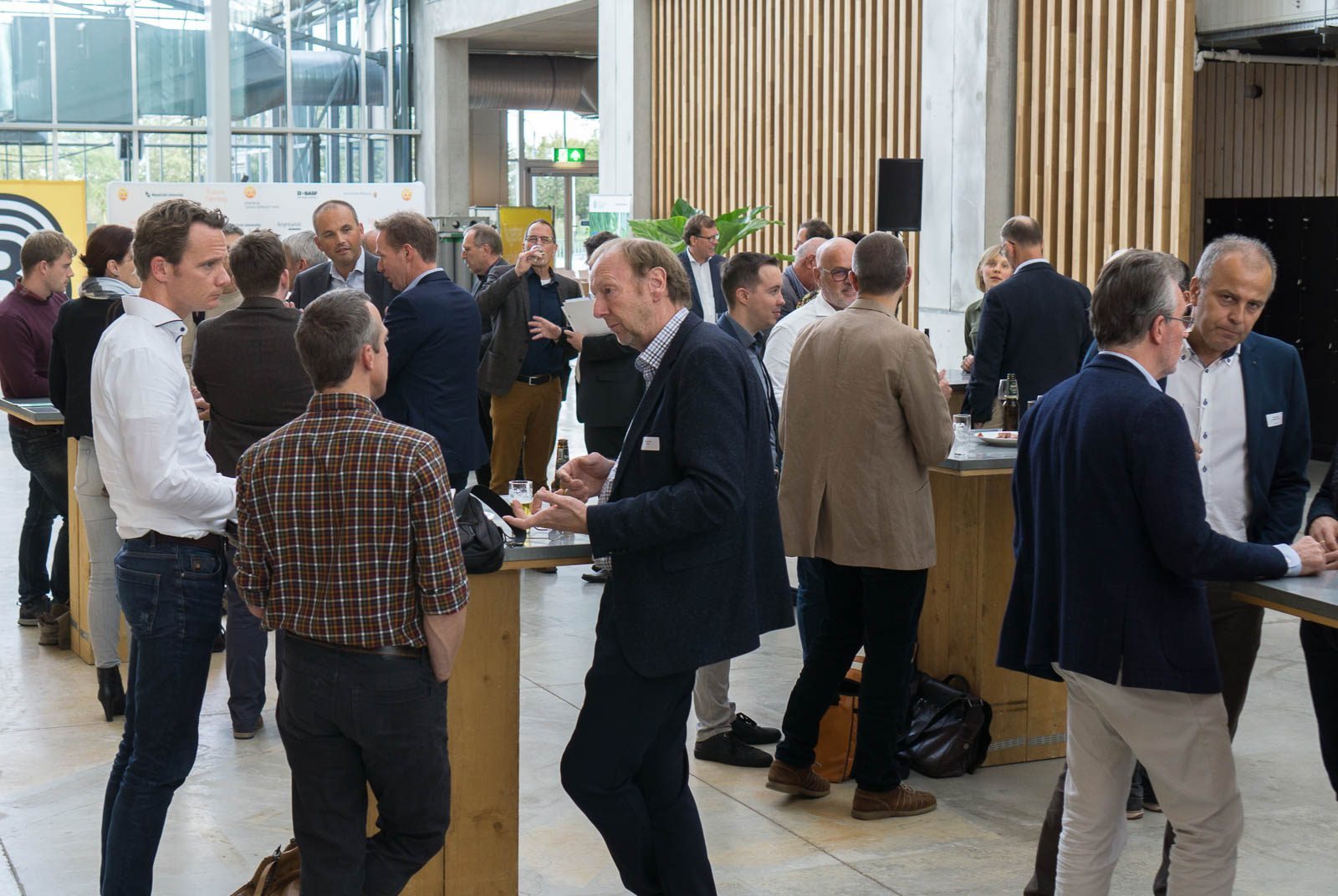Event “HighTech meets Biomass” successful
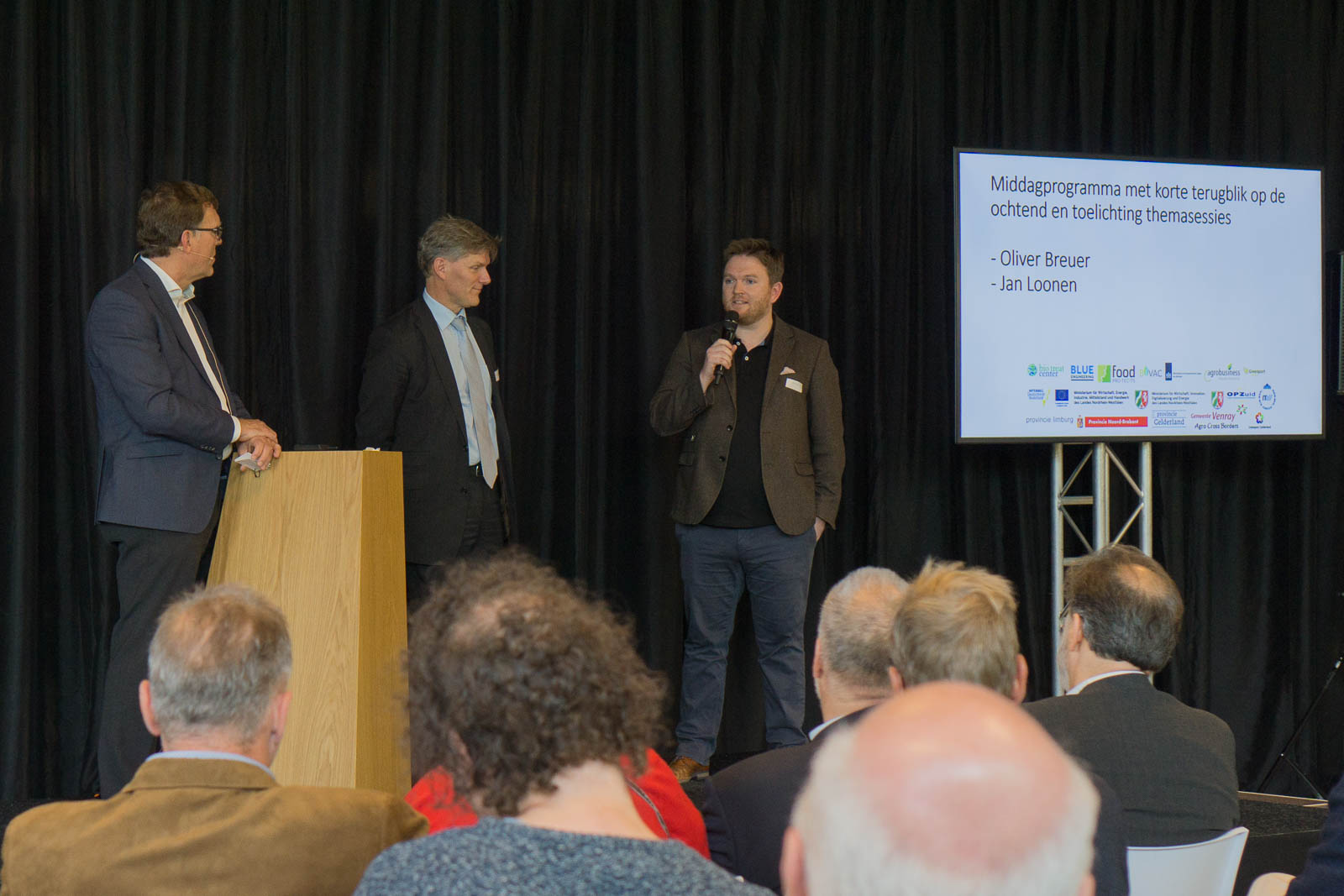
The cross-border event “Hightech meets Biomass” at the Brightlands Campus Greenport Venlo, organised as part of the GIQS Food Pro·tec·ts project, was dedicated to the link between technological innovation and the primary sector. The farmer of the future is not only a producer of food and feed, but also a supplier of valuable raw materials for the chemical, construction, food and cosmetics industries. The importance of a recycling economy and the ever more efficient use of biogenic raw materials (biomass) are attracting more and more attention and offer opportunities for cooperation and application of (technological) innovations. The role of biomass in a bio-based economy is irreversible. National and international speakers therefore highlighted the technical challenges we face in this area.
In the morning three speakers, Andreas Fath, Johan Sanders and Paul Iske, gave cause for reflection. Fath pointed out the necessity of clean water for the growth of biomass. With the project “Rheines Wasser” Fath attracted international attention. The chemistry professor at Furtwangen University swam down the Rhine from its source to its mouth and investigated the quality of the river water. Johan Sanders, Emeritus Professor Wageningen University & Research, focused his presentation on the role of biorefineries as the key to sustainable applications. By using the biorefinery, we can use all the components of the plant and use them as raw materials for food, feed, chemicals and materials. The last speaker of the morning was convinced by the fact that real innovations are not created on the usual well-trodden paths, but by falling and standing up again. Paul Iske from Maastricht University spoke about the value of learning from mistakes in complex innovation processes.
Knowledge knows no boundaries
The afternoon was kicked off by Jan Loonen, Deputy for Economic Affairs for the municipality of Venray, and Oliver Breuer, CEO of GIQS and project manager of Food Pro·tec·ts. Among other things, they stressed the importance of euregional cooperation and participation in cross-border INTERREG programmes such as the INTERREG programme Deutschland-Nederland.
In the afternoon programme, participants were able to participate in small groups in a variety of thematic sessions on a range of technological innovations and their link to biomass: From processing organic waste streams, treating sludge from wastewater, hydrothermal carbonisation, insects as a new source of protein and waste of nutrients to the roadmap needed to increase the supply of sustainable biomass in the Netherlands. The products developed by Food Pro·tec·ts can be viewed here. In addition, there was room for inspiring practical examples such as the one from the Belgian Eco Treasures, which deals with high-quality extraction from by-products.
The event “HighTech meets Biomass” took place for the first time and proved to be more directly useful and necessary to bring together the primary industry and representatives of the high-tech industry. Throughout the day, different groups of initiatives were presented which served as a basis for the establishment of new projects.
Food Pro·tec·ts is implemented under the INTERREG V A programme Deutschland-Nederland and co-financed by the European Regional Development Fund (ERDF) and the Dutch Ministry of Economic Affairs, MWIDE NRW and the provinces of Gelderland, Limburg and Noord-Brabant. It is accompanied by the programme management of the Euregio Rhein-Waal.



